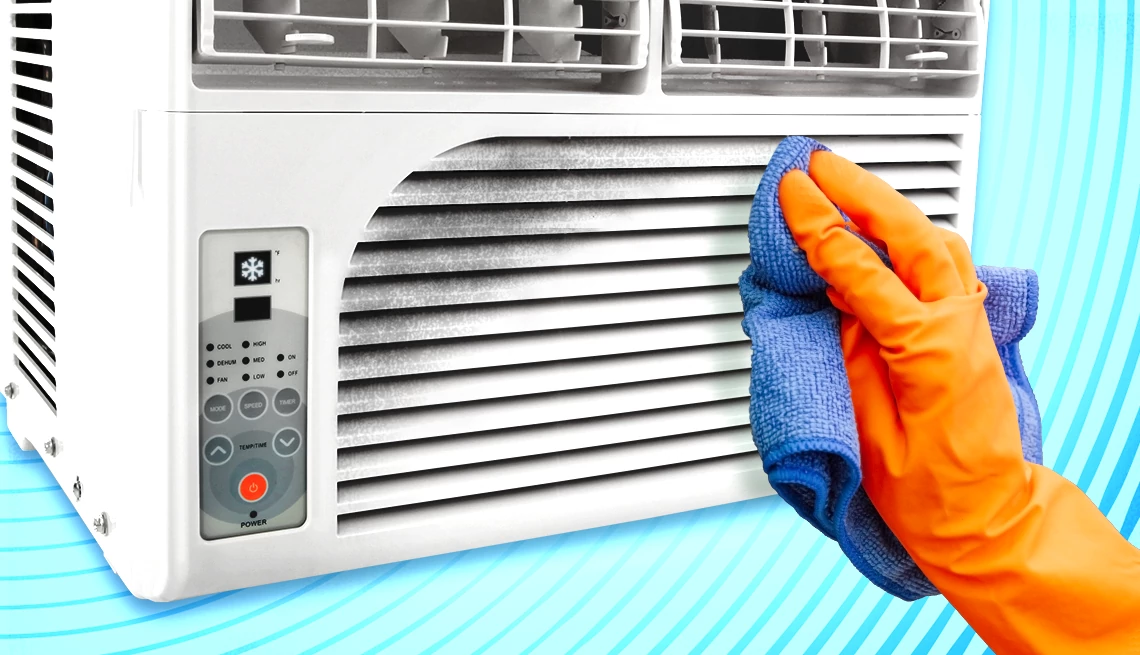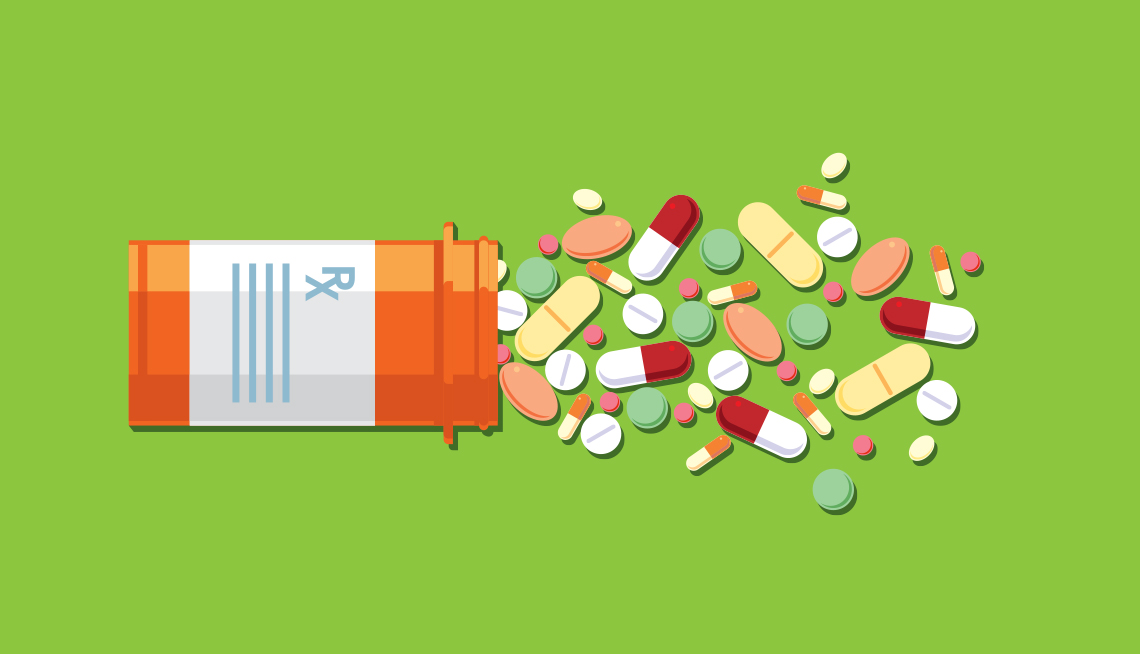AARP Hearing Center


Temperatures are soaring in many regions of the country, putting many people — especially older adults, who are most vulnerable to heat’s dangers — at risk for heat-related illness, even death. And one thing that doesn’t help is if you are taking medications that interfere with your body’s ability to cool itself down.
Several pills and potions can affect how well the body is able to handle heat — an issue that is “particularly important for older people” because they tend to be on more of these medications, says Cecilia Sorensen, M.D., director of the Global Consortium on Climate Health and Education at Columbia University in New York City.
It’s crucial to pay attention to this often-overlooked side effect during heat waves, which the Environmental Protection Agency says are increasing in both intensity and frequency — but it’s not just those stifling stretches that can be dangerous. Research shows that older patients with chronic medical conditions who take heat-sensitive medications can have medication-related problems throughout the entire summer.
Medications and the Sun
Is your medicine making your skin sensitive in the sun? These five drugs can put you at greater risk for sunburn-like symptoms, a rash or other unwanted side effects.
- Antibiotics: tetracycline (Panmycin), doxycycline (Vibramycin), ciprofloxacin (Cipro), ofloxacin (Floxin)
- Antifungals: griseofulvin (Gris-PEG)
- Antihistamines: loratadine (Claritin), cetirizine (Zyrtec)
- Statin cholesterol medications: simvastatin (Zocor), atorvastatin (Lipitor), lovastatin (Mevacor), pravastatin (Pravachol)
- Diabetes medications: sulfonylureas like glipizide (Glucotrol), glyburide (Micronase)
How do medications affect your heat tolerance?
First, it’s important to understand how your body deals with heat and works to maintain that ideal internal temperature of 98.6 degrees.
To cool off, your body has several tricks. One is perspiration, or sweat. When sweat evaporates from your skin, it cools the body.
Another is when the blood vessels underneath your skin vasodilate (widen) and bring warm blood closer to your skin, allowing the skin to release heat.
Several different medications, though, can interfere with this complex thermoregulation system by limiting the body’s ability to sweat or by reducing blood flow to the skin. Medications can also cause dehydration, and some may make the skin more sensitive to the sun, causing a rash or sunburn.
Some individuals are more susceptible to these heat-related issues than others. Risk factors include being over 65, having chronic medical conditions and being overweight. Spending time outside during the warmest part of the day — especially if you are doing yard work, physical activity or exercise — also increases your risk.
Dave Kent, a retired librarian, had a heart attack more than a decade ago; exercise, along with cardiac medications, is part of his treatment plan. But when the forecast calls for heat, he plans his outdoor activities for the cooler times of the day to avoid medication side effects. “I think having an active lifestyle and maintaining a healthy diet are the keys to dealing with whatever Mother Nature throws at us,” Kent says.
8 types of medications that don’t mix with heat
Below are some examples of commonly used medications that can make it harder for your body to handle the heat.
1. Heart medications
Prescribed for high blood pressure and blood clot prevention and to support the pumping function of the heart.
- Diuretics (also called water pills): furosemide (Lasix), chlorthalidone (Hygroton), hydrochlorthiazide (Microzide, HydroDiuril)
- Beta blockers: metoprolol (Toprol, Lopressor), atenolol (Tenormin), carvedilol (Coreg), propranolol (Inderal)
- ACE Inhibitors: lisinopril (Zestril, Prinivil)
- Angiotensin II receptor blockers (ARBs): losartan (Cozaar), valsartan (Diovan)
- Antiplatelets: clopidogrel (Plavix)































.jpg?crop=true&anchor=13,195&q=80&color=ffffffff&u=lywnjt&w=2008&h=1154)









































More on Health
Hot Days Can Be Hard on the Heart
Risk of heart attack, stroke is greater in extreme temps
Can You Safely Get Vitamin D From the Sun?
A few minutes in the sun might have benefits, but risks include skin cancer, wrinkles
AARP Smart Guide to Sun Protection
SPF is just one important factor — here are more tools that can help in preventing damage from harmful rays